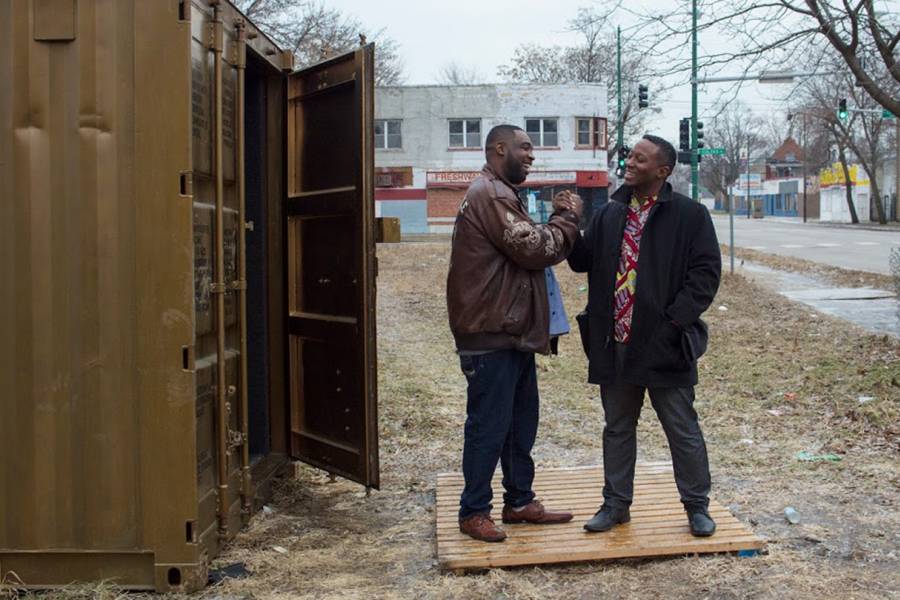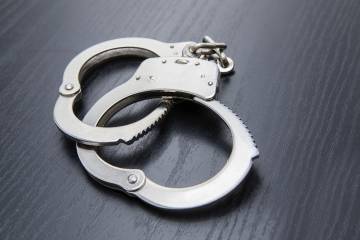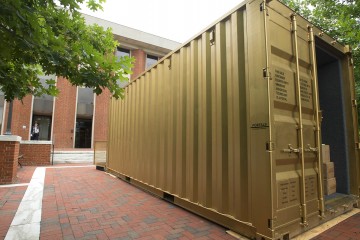Central to the recent movement to end racist policing practices are the voices of those with the most expertise on the situation: Marginalized people who live in communities with the greatest exposure to law enforcement. And yet, those individuals are almost never consulted about the world they experience or the ways policies and practices might be improved.
This omission is not only leading policymakers down roads unlikely to provoke the changes that are sought, says Vesla Weaver, Bloomberg Distinguished Associate Professor of political science and sociology, but it also causes researchers and policymakers alike to miss opportunities to understand the status quo by not even asking the right research or policy questions.
"When we really listen to how criminal justice is experienced and how policing is experienced on the ground, the portrait that begins to emerge is of something that bears almost no resemblance to the formal laws," Weaver says.
Her conclusions are drawn from the findings of the Portals Policing Project, which Weaver led with Tracey Meares and Gwen Prowse of Yale University. The project connected some 2,000 residents of six cities in one-on-one conversations about their experiences with police. The portals are both literal and figurative: A participant enters a gold-painted shipping container fitted with audiovisual technology that creates the sense of being in a room with someone in an identical container hundreds of miles away, creating a channel for a range of discoveries about shared experiences and common threads of knowledge.
The portals were open from 2016 to 2018 in 14 neighborhoods chosen for their heavy police presence. When not being used for the research, members of the community designated as curators used them to host events like poetry slams, barbecues, and chess tournaments. During the study, the curator would pose a single question—"How do you feel about police in your community?"—and the visitor would come face-to-face with a visitor in a different city. Their 20-minute conversations were recorded and anonymized, and Weaver and other researchers have been listening closely to learn from those not usually recognized as experts on their own lives.
"You know, like, with us, we're guilty until proven innocent," said a Black woman from Baltimore, age 50. "With them, they're innocent. They get bails. We don't get the same thing they get. But we're under one [nation]. … Are we really under one or are we under … many?"
Even with the recent national spotlight shone on racism in policing, few venues exist for people to speak directly with one another about their own experiences in this way. The researchers discovered that not only do portal visitors report finding value in listening to one another and identifying common narratives, but that they also say they appreciate sharing what those experiences have taught them from a very early age: the vital survival skill of recognizing the dissonance between the way U.S. democracy should work and the ways U.S. institutions operate in practice—and how to behave in accordance with those disparities, which very few of the conventional "experts" are aware of.
"Often people don't just say 'here's my experience' and then they leave it there," Weaver says. "What they're doing is they're interpreting, and telling bigger stories about what it means to be governed this way, and what it means to be positioned this way, and how they adapt to that and how they respond to it and teach their children about it, and how they seek to preserve some dignity in these encounters that feature violence." Conversations often turned to what Weaver calls "collective autonomy," where participants have looked within their own communities to create systems of safety that offer protection rather than harm.
The information Weaver and her colleagues are learning doesn't just add to the existing body of research on public policy; it reveals the fallacy of long-held beliefs forming the foundation of that policy. For example, researchers and policymakers often believe that marginalized people will feel more efficacious if they have more votes or better representation in office. But Weaver points out that frequent, forced, and violent interactions with police have caused residents to distance themselves from many of the institutionalized structures of U.S. society. Before votes and representation can make a difference, she says, people must be recognized and understood. In order to bring democracy to life in heavily policed communities, marginalized residents don't just need a louder voice or more elected officials who look like them; they need to be the ones designing the structures and systems. It's not that participants want more Black officers on the police force, it's that they want safety to happen in an entirely different way than through the current model of policing.
"That flies in face of a lot of writing even among some of the best criminal justice scholars, where there's this idea that if you fix the procedures, if you train police enough, if you're law-abiding, you won't have these kinds of interactions," Weaver says. "You can read five of our conversations and understand that that's so far from the truth of people's existence."
Take for example this conversation between study participants in Chicago and Milwaukee:
Chicago participant 1: "They knock m—f—'s noodles right out."
Chicago participant 2: "He said knock noodles right out. They can't do that, that's against their rights."
Chicago participant 1: "I'm telling, they don't give a f—, bro."
Chicago participant 2: "It's their rights. They can't do that s—, man."
Chicago participant 1: "Look though, who, who word they going to go against, bro? They ain't going to take our word because [to them] we Black m—f—s, ... you hear me?"
Chicago participant 2: "That's what I'm saying, they going to win regardless, they don't care, bro. Why do you think it's Black people out dying right now, because they don't care."
Chicago participant 1: "They don't. They, their main job is to protect and serve for, you know what I mean ... They don't do that s—, man. You feel me. I feel like man, what the f—? Why do we need police officers?"
Milwaukee participant: "I feel like we don't need them either. If they ... just let all the real Black people out. All the real leaders out, everything be back cool. You feel me, we really don't need police. Y'all want police, make police who go to people houses to help them get jobs, or the guys get everybody a job. There wouldn't even be no violence, everybody have money, everybody good."
Chicago participant 1: "Everybody eat, you feel me?"
Milwaukee participant: "Everybody eat so there ain't no problem, ain't no violence."
While the researchers embarked on the project hoping to shed light on lived experiences and create a new theory of the state, one finding did surprise them. Through visitors' interactions around the ways they've adapted to the oppression imposed on their communities, Weaver says the portals themselves became grounds for the kind of autonomous, responsive community so many of the participants described—one more like what they imagine democracy could be.
In the Milwaukee neighborhood of Amani, the most heavily incarcerated community in the nation, portals curator Lewis Lee watched as 11 young people came together every day in creative endeavors—a music festival spanning 15 countries, for instance—transforming the neighborhood around them.
"What was surprising to me was, here we take this tiny portal—we didn't need a big grant, we didn't need a big government commission, we didn't need a policy evaluation—and safety deprivation felt less acute to the curators there," Weaver says. "It was giving people agency who have incredible expertise, they've got street expertise, they've got the expertise that comes from being oppressed. When you let that fly and when you position them as leaders, and as innovators, and as entrepreneurs, they're able to achieve so much for the neighborhood because it gave them agency, and it gave them a way of telling their story, and of doing things with other communities, and of getting to travel to other places."
Posted in Politics+Society
Tagged police, police violence, policing










